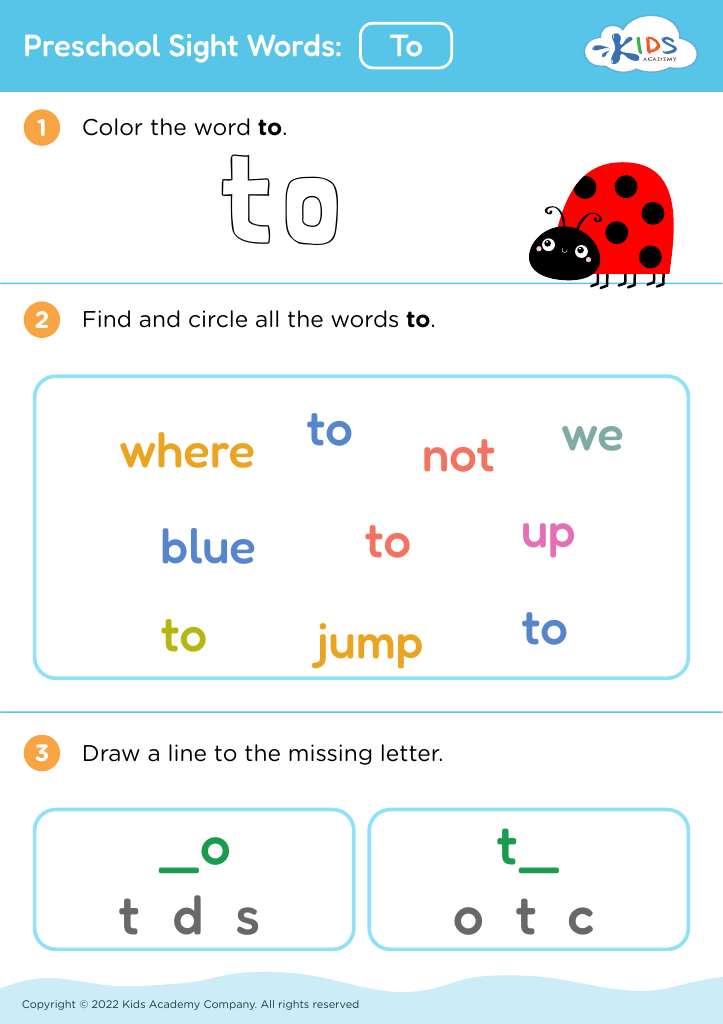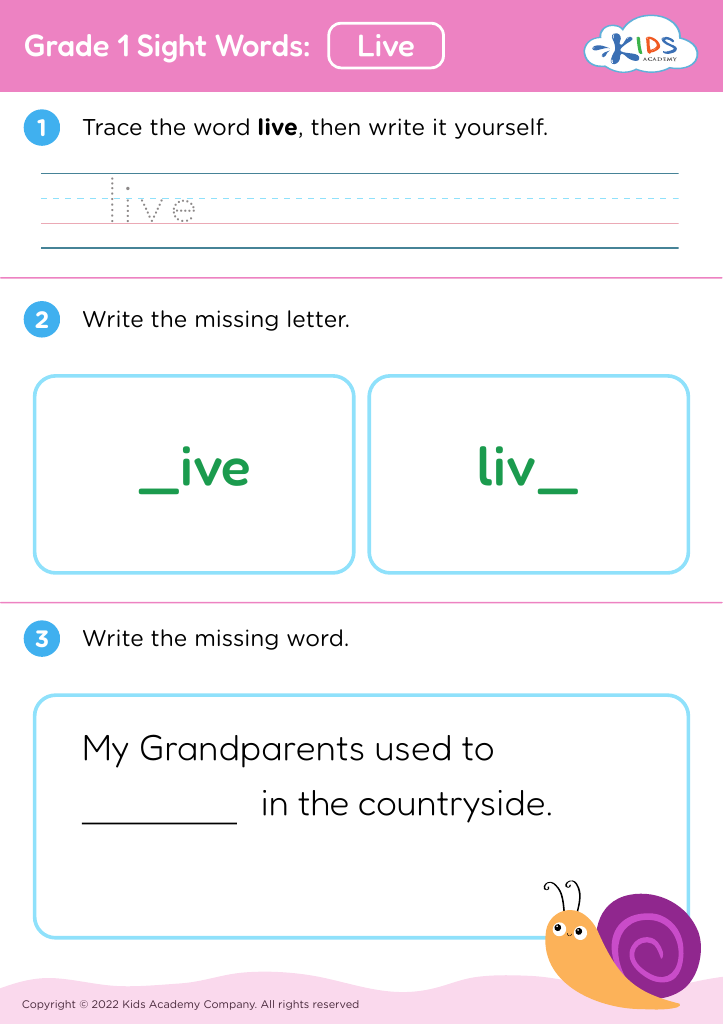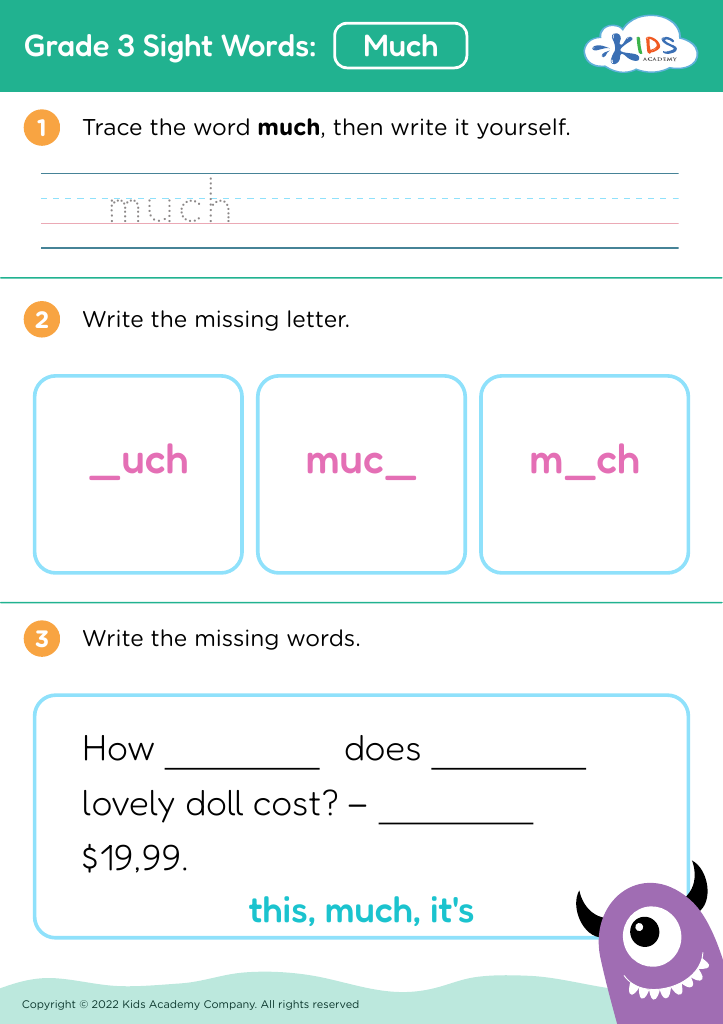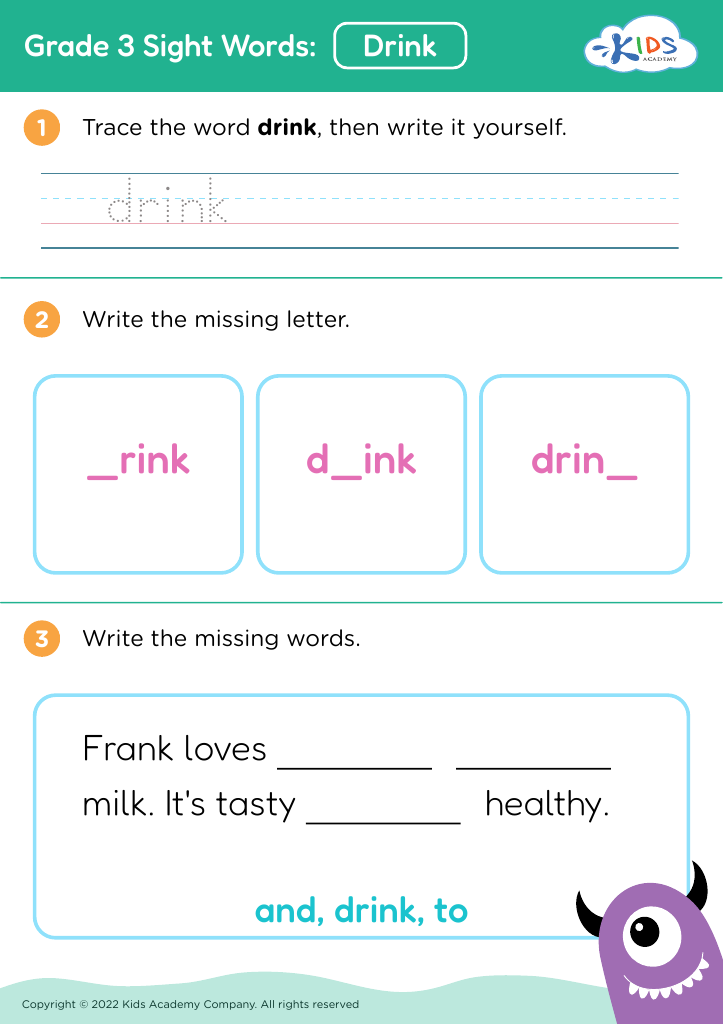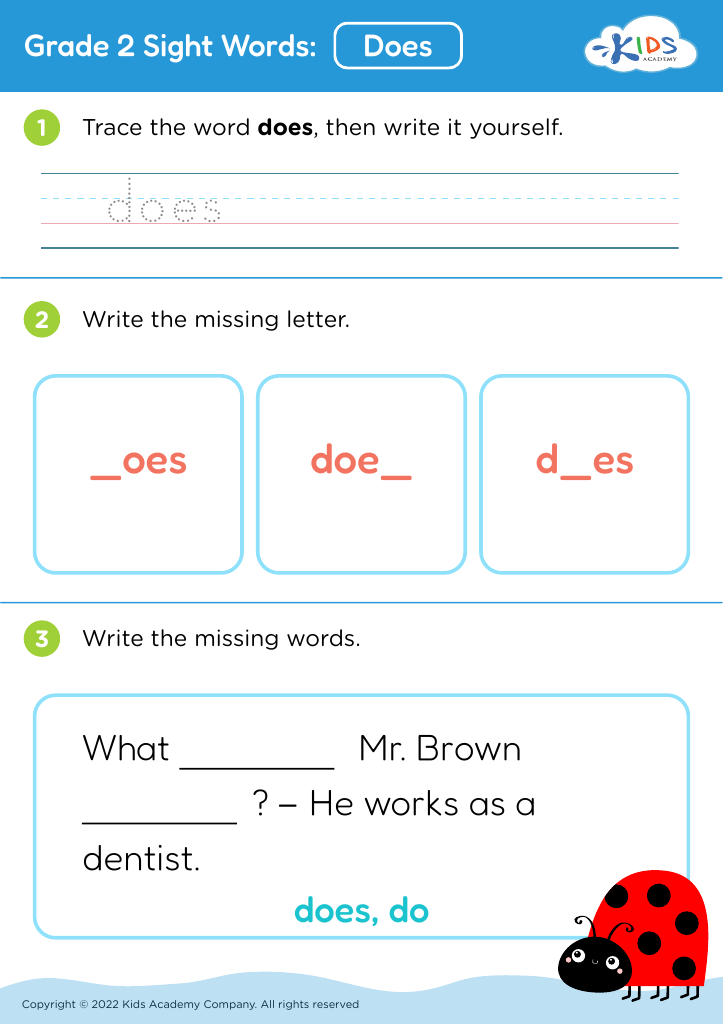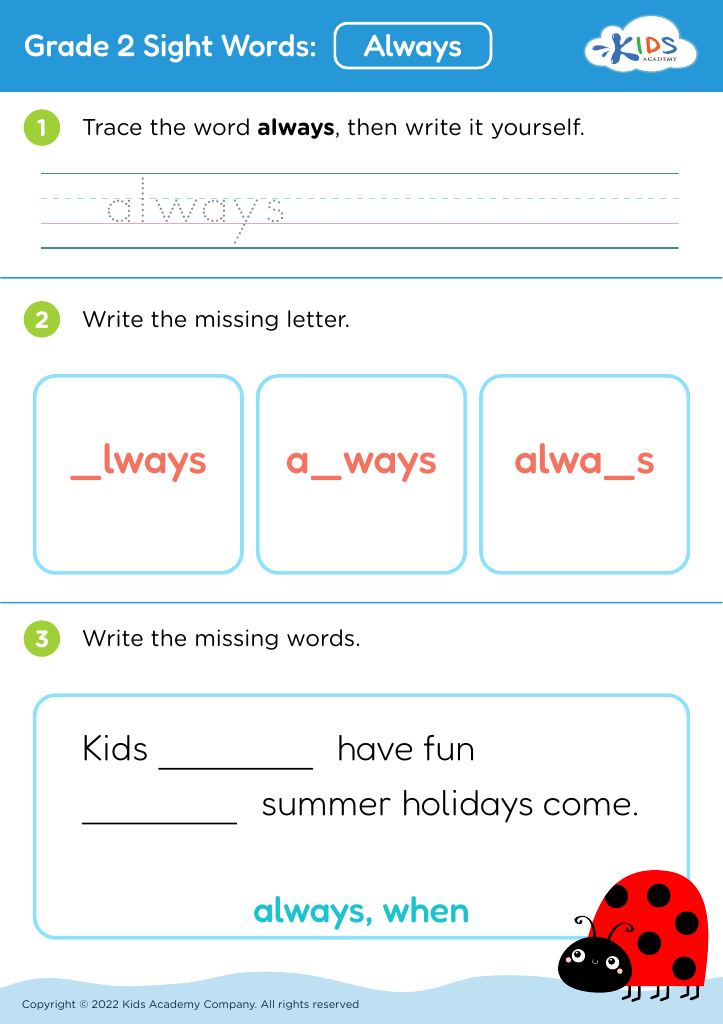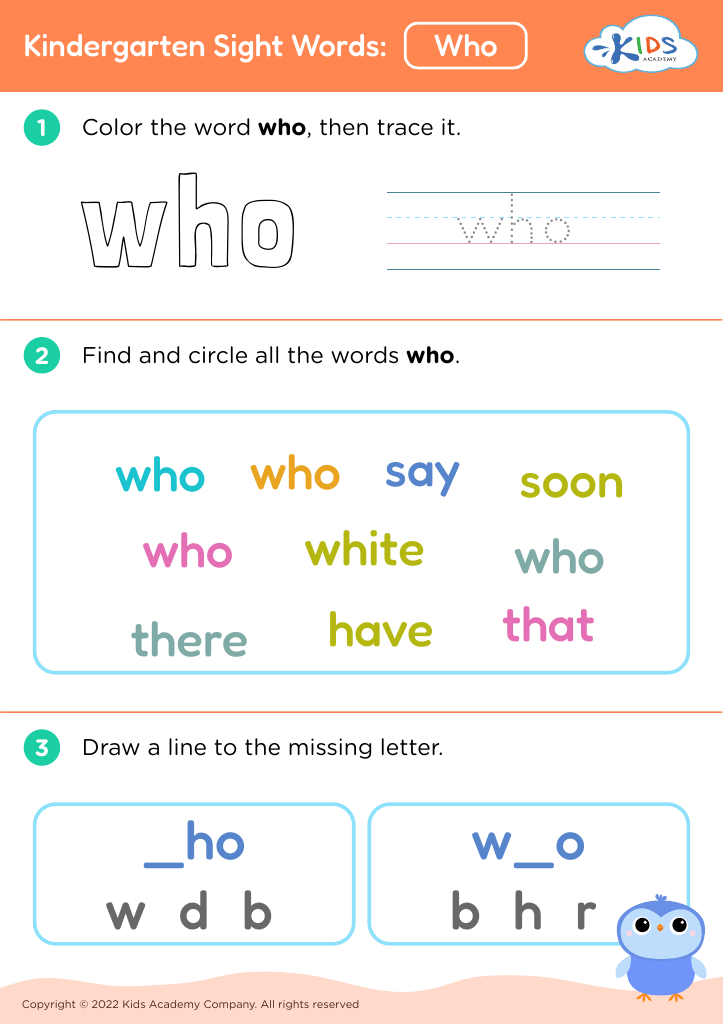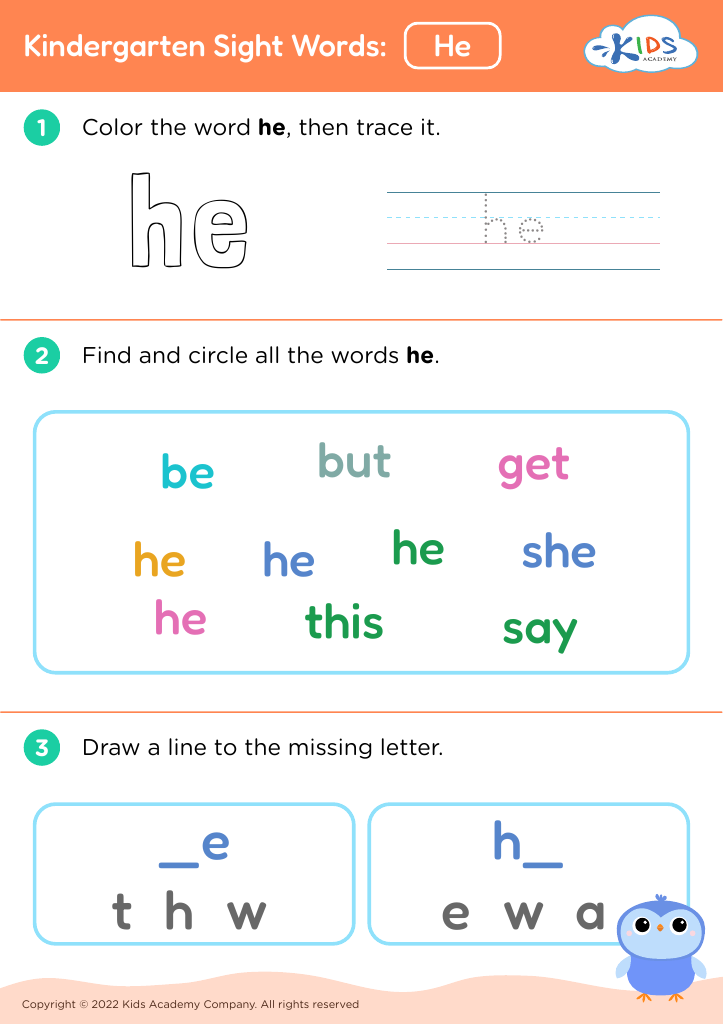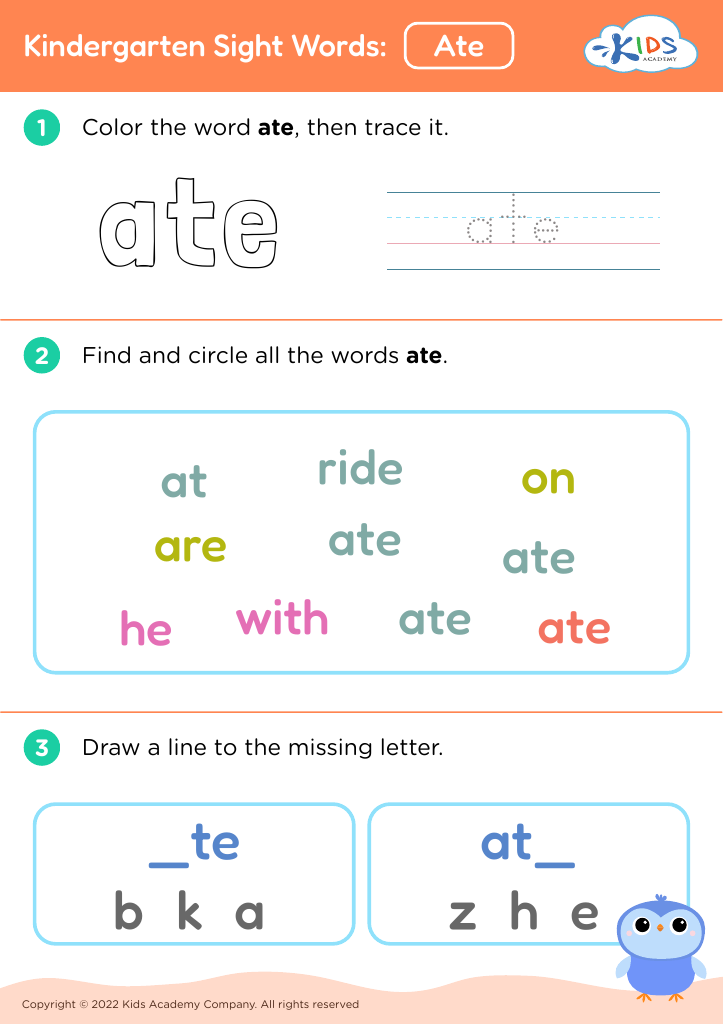Improve reading skills Building Vocabulary Worksheets
13 filtered results
-
From - To
Enhance your child’s reading skills with our comprehensive Building Vocabulary Worksheets! Designed for young learners, these engaging worksheets focus on expanding vocabulary and improving comprehension. Each activity is tailored to encourage exploration of new words, meanings, and usage in context, fostering a deeper understanding of language. Ideal for early grade teachers and parents alike, our printable resources make learning fun and interactive. Whether in the classroom or at home, these worksheets are excellent tools to support your child's literacy journey. Help your little ones build confidence and proficiency in reading with our expertly crafted vocabulary exercises!
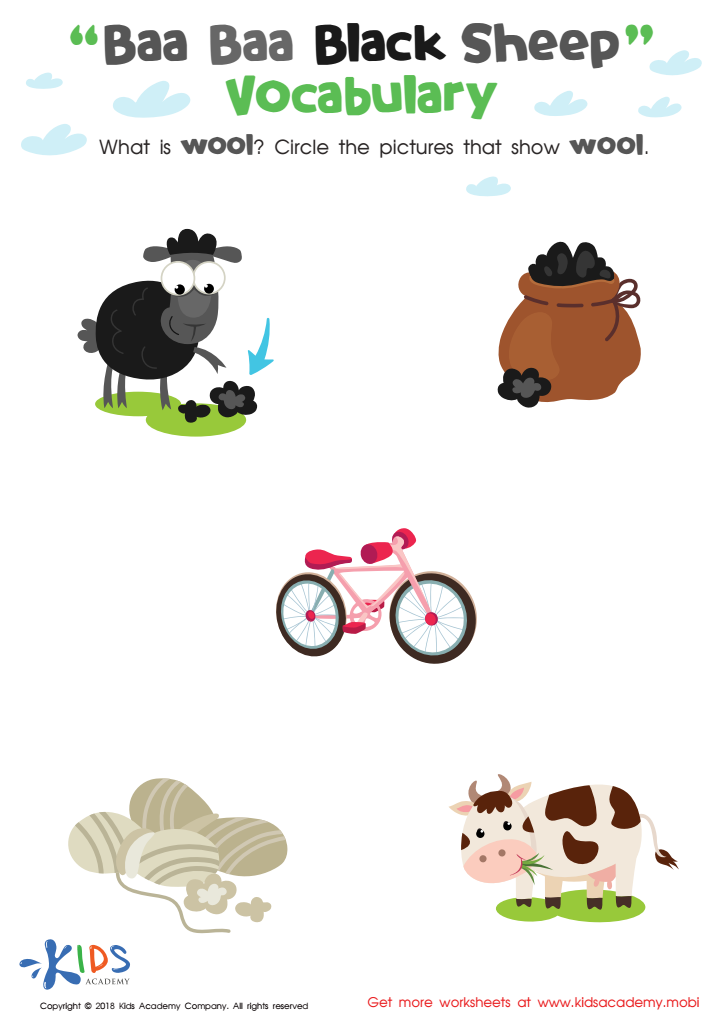

Baa Baa Black Sheep: Vocabulary Worksheet
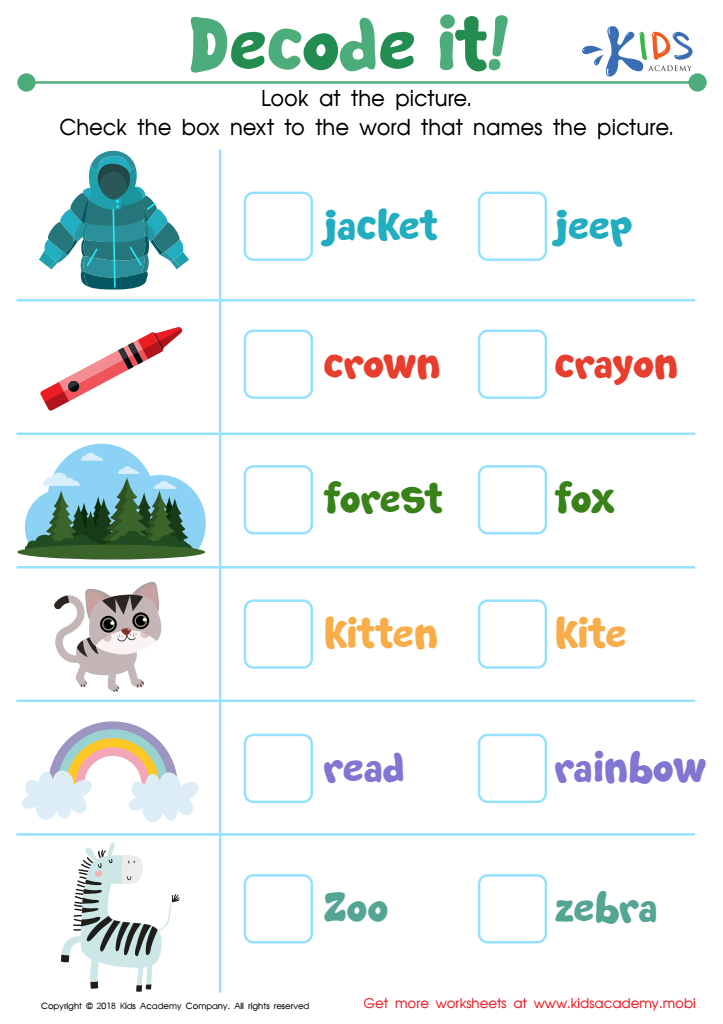

Reading: Decode It Worksheet
Parents and teachers play a crucial role in a child’s literacy development, particularly in enhancing reading skills and building vocabulary. Improving reading skills ensures that children can effectively decode and comprehend texts, which is essential for academic success across all subjects. When children read proficiently, they can engage more deeply with content, leading to higher levels of curiosity and critical thinking.
Building vocabulary is equally important, as a rich vocabulary allows children to express themselves clearly and understand a wide range of materials. A strong vocabulary enhances reading comprehension, enabling kids to grasp more complex ideas and concepts as they progress in their education.
Furthermore, a broad vocabulary fosters confidence, encouraging children to engage in discussions, ask questions, and participate in educational activities without fear of misunderstanding. Parents and teachers should care about these skills because they lay the foundation for lifelong learning. The ability to read well and understand language is not only crucial for academic achievement but also for personal growth and communication in society. Investing in these areas equips children for future challenges and opportunities, making it imperative for caring adults to focus on improving reading and vocabulary skills.

 Assign to My Students
Assign to My Students
